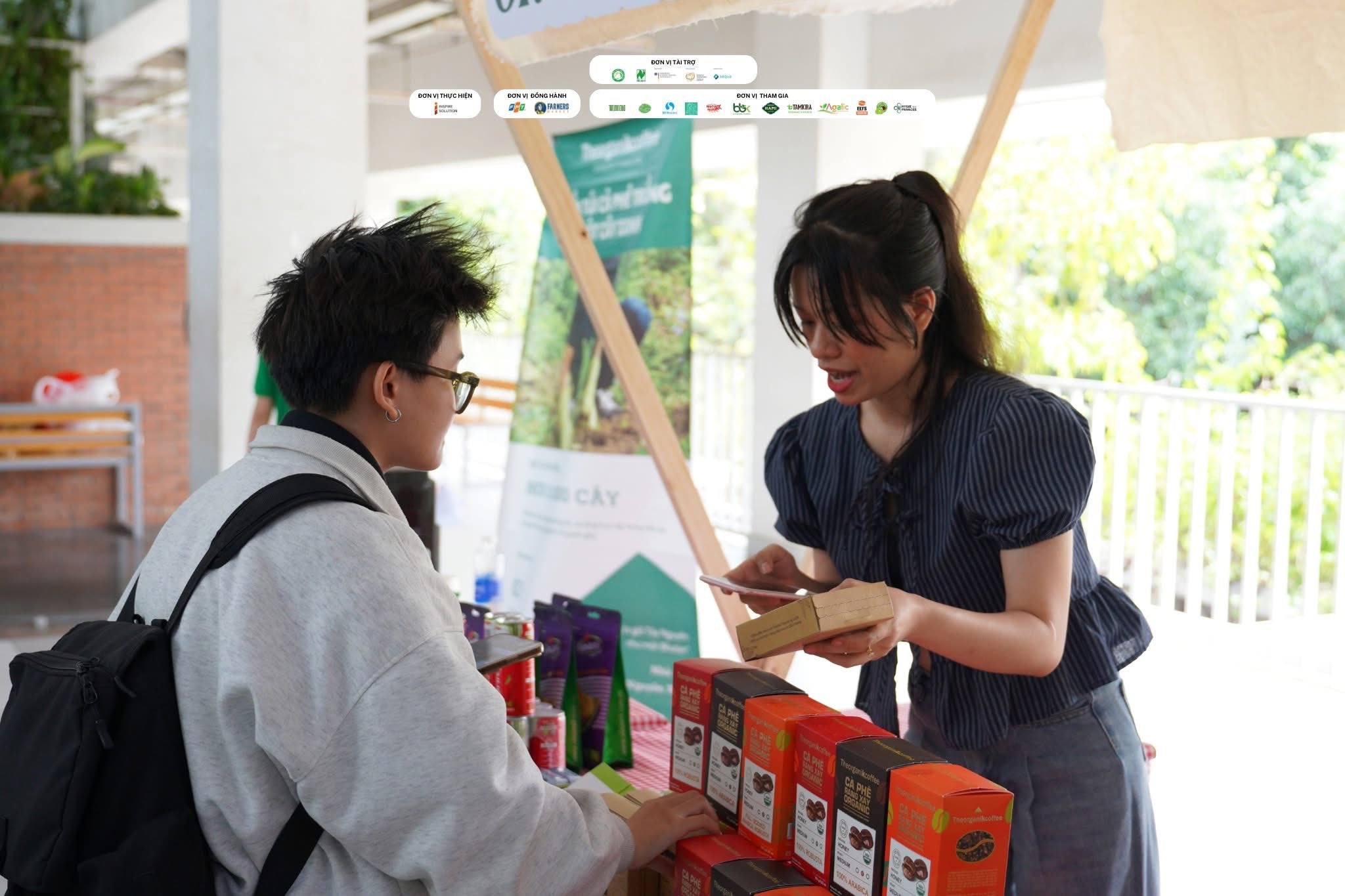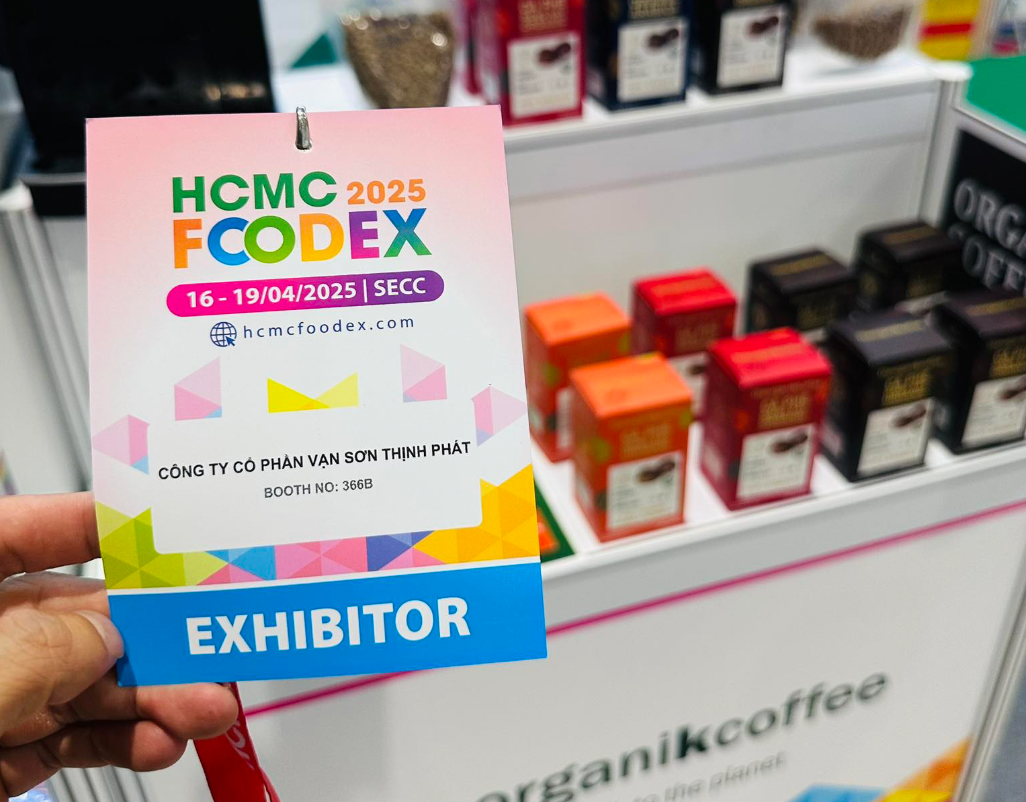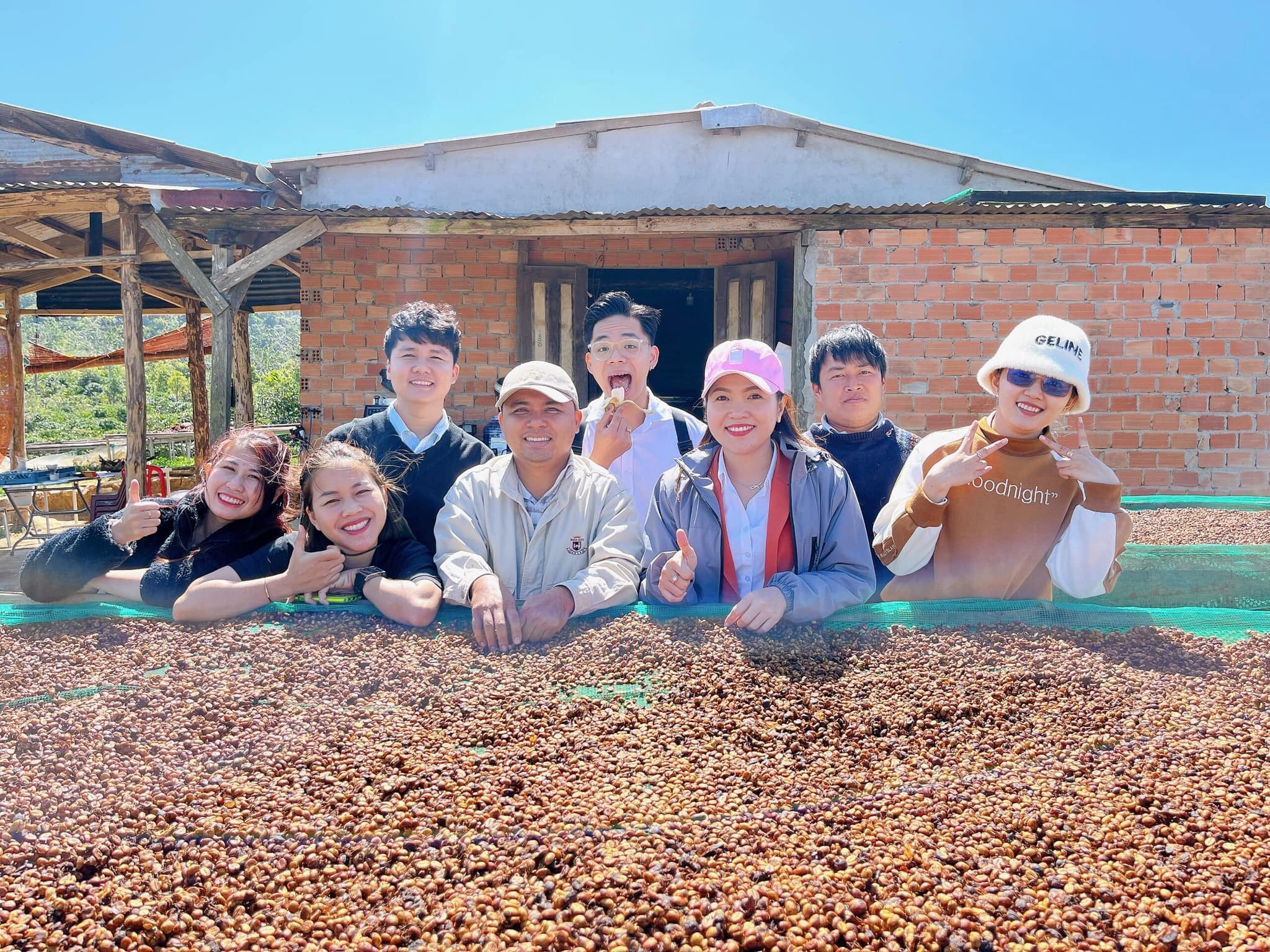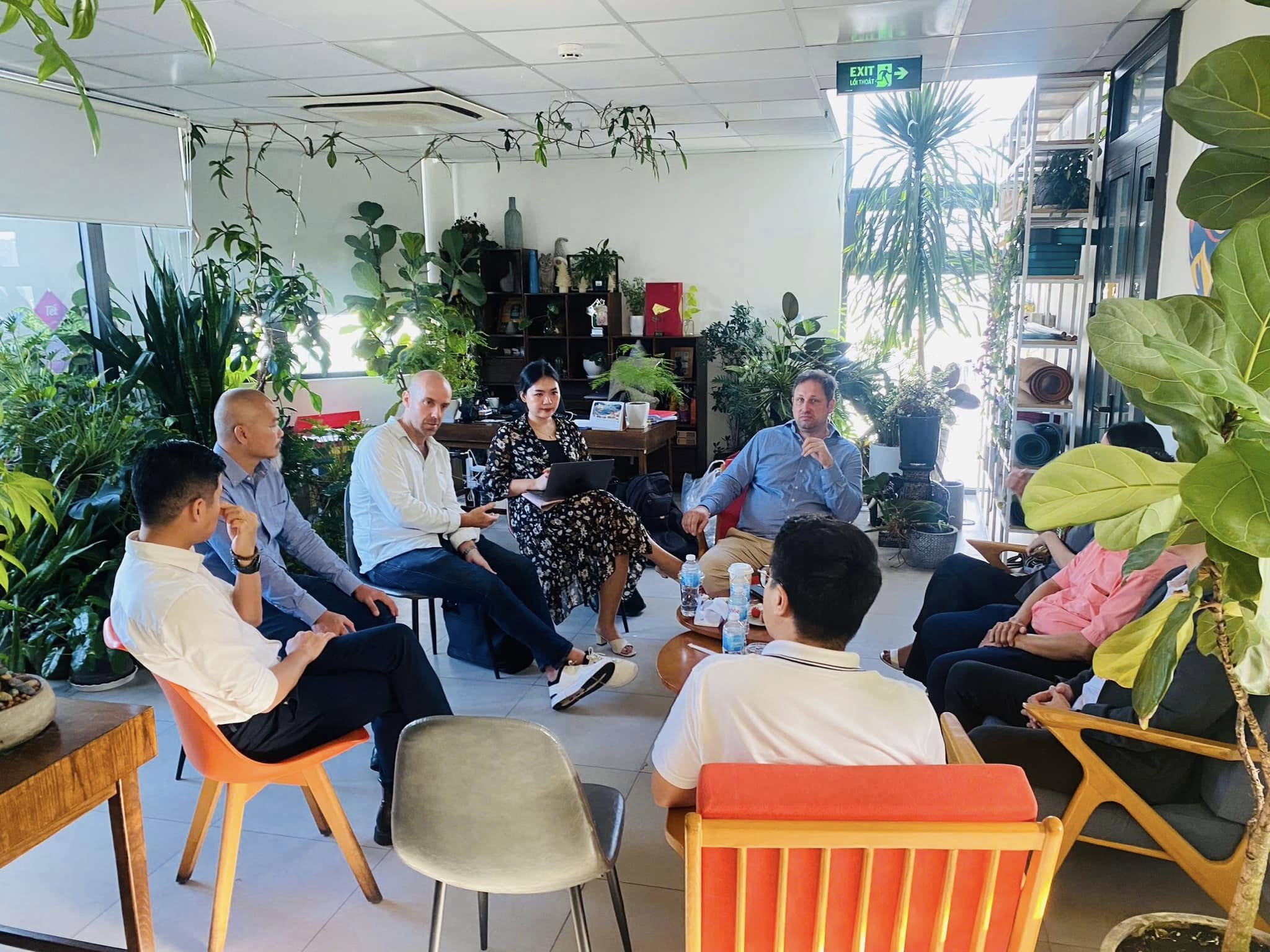In the heart of sustainable agriculture and organic practices, Naturland, a renowned German association that champions organic farming, recently hosted an event entitled "Is Organic a Trend or the Future?" This gathering brought together thought leaders, agricultural experts, business innovators, and stakeholders from around the globe to discuss and share insights on the future of organic products.

The Organics Debate: More Than a Trend?
The core discussion at Naturland's event revolved around the idea of whether organic products are a passing trend fueled by health-conscious consumerism or a deeper, sustainable practice that embodies the future of farming and food consumption. The question resonates strongly with both producers and consumers, as the global organic market continues to expand with rapid growth.
Ngô Bích Quyên, speaking on behalf of both Organicfood.vn provided valuable insights into why organic practices are not just a trend but a vital movement toward a healthier, more sustainable world. She explained, "The rise of organic products reflects a broader shift in the way we think about food production. It’s not just about eating; it’s about how our choices impact the environment, farmers' livelihoods, and public health."

Theorganikcoffee’s Commitment to Organic Excellence
Theorganikcoffee stands as a prime example of a business that exemplifies this sustainable shift. As a wholesale supplier of 100% USDA-certified organic coffee, Theorganikcoffee has been recognized for its dedication to producing high-quality beans that meet rigorous organic standards. Based in Lam Dong, Vietnam, the company is deeply rooted in the belief that ethical and sustainable farming practices lead to superior products and contribute positively to the environment.
The beans used by Theorganikcoffee are sourced from small, certified organic farms that prioritize biodiversity, soil health, and the exclusion of synthetic pesticides and fertilizers. This approach ensures that every cup of coffee not only tastes rich and full of flavor but also represents a commitment to protecting the natural world and supporting sustainable agriculture.

Organic Certification: Challenges and Triumphs
During her presentation, Ngô Bích Quyên highlighted some of the challenges and triumphs associated with obtaining and maintaining organic certification. She noted, "Achieving organic certification is a rigorous process that involves a thorough review of farming practices, soil health, and the use of natural inputs. For Theorganikcoffee, this process is a testament to our commitment to providing the best possible product while upholding environmental stewardship."
The certification process involves strict adherence to organic standards, which include ensuring that the soil is free of prohibited chemicals for at least three years before certification and using natural pest control methods. These requirements, while challenging, play a critical role in maintaining the integrity of organic products and distinguishing them from conventional counterparts.
One of the most significant triumphs for Theorganikcoffee has been building trust and awareness among consumers who are increasingly drawn to sustainable brands. By participating in international events such as Naturland's, Theorganikcoffee demonstrates its dedication to transparency and education in the organic sector.
The Social Impact of Going Organic
Quyên also touched on the broader social impacts of adopting organic practices, emphasizing the well-being of farming communities. "Sustainability isn't just about the environment; it's also about people. Theorganikcoffee's partnerships with local farmers create opportunities for better income, safer working conditions, and a more secure future," she said.
Organic farming supports a more holistic approach to agriculture, fostering ecosystems that can sustain future generations. Farmers engaged in organic coffee production often benefit from higher profits due to the premium prices that organic products can command. This financial uplift can translate to improved living standards and educational opportunities for their families.
Consumer Perspectives: Why Choose Organic?
Theorganikcoffee's commitment to sustainability is in line with shifting consumer preferences. More people are now making informed choices about their purchases, seeking out brands that align with their values regarding health and environmental responsibility. The global organic coffee market reflects this shift, with a steady increase in demand driven by both taste and ethical considerations.
Consumers who choose organic products often cite the reduced use of pesticides and synthetic fertilizers as a primary motivator. Additionally, the flavor profile of organic coffee is often praised for its purity and complexity, attributed to the absence of chemical residues that can affect taste. "Every sip of organic coffee tells a story of care, from the farm to the cup," Quyên remarked, reinforcing that choosing organic is as much about supporting a vision for the future as it is about enjoying a quality product.
Challenges Ahead: The Road to a Global Organic Standard
While organic products continue to grow in popularity, achieving a global standard for organic certification remains a challenge. Quyên acknowledged this, noting that while Theorganikcoffee has been successful in adhering to USDA organic standards, variations between certification bodies across countries can complicate the process for producers aiming to expand into international markets.
"Creating a unified global organic standard could help streamline practices and build consumer trust even further," Quyên suggested. This would make it easier for smaller producers to participate in the global organic market and ensure that organic products worldwide maintain consistent quality and ethical standards.
The Future Is Organic
As the Naturland event concluded, it became clear that organic products, particularly in the context of coffee, are more than just a trend—they represent a pivotal shift in the global approach to food and agriculture. Theorganikcoffee's participation in this event highlighted not only the importance of sustainable practices but also the company’s leadership in driving positive change within the industry.
The question of whether organic is a trend or the future was met with thoughtful discussion and insights that point to a collective acknowledgment: organic practices hold the key to a healthier, more sustainable world. For Theorganikcoffee and many other like-minded companies, the future is organic, and that future begins now.





